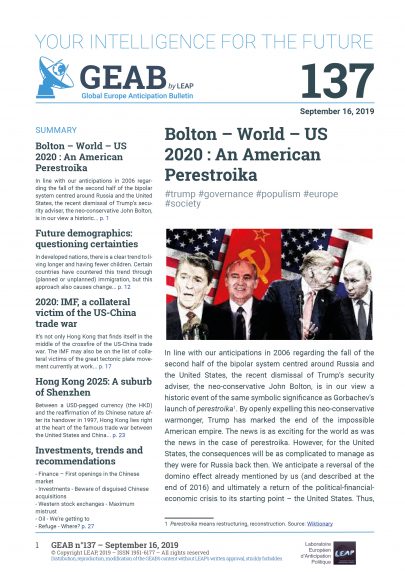GEAB 137
In developed nations, there is a clear trend to living longer and having fewer children.[1] Certain countries have countered this trend through (planned or unplanned) immigration,[2] but this approach also causes change, with new ethnic mixes, and imported cultures, which in turn has led to a political backlash.[3] It is also well accepted that, as the wealth of emerging markets increases, a similar process is underway with them. This has been witnessed already in China, which has a particularly strong demographic change ahead, following the one child policy. But there are still important questions that remain open, such as: What impact will ageing populations have on the economy and society? Will all countries be able to manage the demographic transition? And what if the demographic bust proceeds more quickly than most people currently believe?
The basic trends
Login

In line with our anticipations in 2006 regarding the fall of the second half of the bipolar system centred around Russia and the United States, the recent dismissal of Trump's [...]
It's not only Hong Kong that finds itself in the middle of the crossfire of the US-China trade war. The IMF may also be on the list of collateral victims [...]
Between a USD-pegged currency (the HKD) and the reaffirmation of its Chinese nature after its handover in 1997, Hong Kong lies right at the heart of the famous trade war [...]
Finance – First openings in the Chinese market Our investment recommendations on the Chinese financial market are not easy to follow due to lack of accessibility. However, gradually the Chinese [...]

Comments